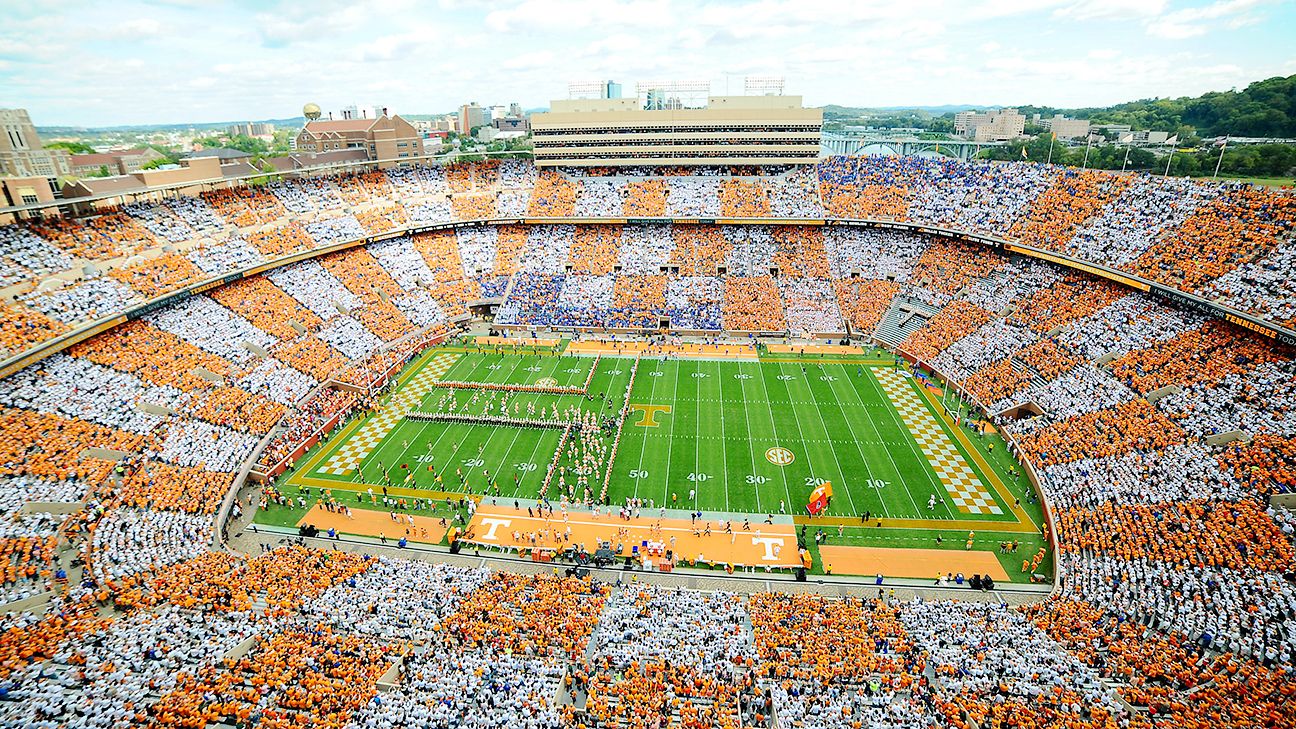Sports
Vols up ticket costs by 10% to help pay athletes

KNOXVILLE, Tenn. — In what is believed to be the first arrangement of its kind, Tennessee fans for all sports will be charged a 10% “talent fee” on tickets to help pay athletes as part of the new revenue-sharing plan set to begin in 2025.
The university shared the news with football season-ticket holders via email Tuesday, which included an impassioned four-minute video of athletic director Danny White telling fans the talent fee and other strategies were “part of an extensive plan to continue our dominance in college athletics and build something like never seen before.”
In addition to the 10% increase on all ticket invoices — season tickets and single-game purchases — as well as donations for those seats, Tennessee will add an average increase of 4.5% on all football tickets.
“In this era of name, image and likeness (NIL), there has never been as close a connection between resources and competitive success,” said White, noting that Tennessee had captured the last three SEC All-Sports trophies. “We want to be a leader in college sports. That means we want to be a leader in revenue sharing.”
The NCAA revenue-sharing plan, scheduled to begin in the fall of 2025, is part of a settlement between the NCAA and power conferences in the House vs. NCAA case that would allow schools to share up to $22 million of their annual revenue with athletes. In preparing for those added costs, schools are becoming increasingly creative in how to raise money, and many college leaders believe the revenue-sharing model recently proposed is only the beginning with collective bargaining coming at some point.
In the most recent financial data available, the Tennessee football program turned a $75 million profit in 2023 — after $134.9 million in revenue and $59.1 million in expenses.
At most of the larger schools around the country, football is the engine that helps fund many of the other sports. The Vols have a streak of 15 consecutive sellouts at Neyland Stadium and led the SEC in total home attendance in 2023 with 713,405 fans — an average of 101,915 per game. For two straight years, Tennessee has sold all 70,500 of its season tickets, and White said there’s a waiting list of 15,000.
Tennessee is experiencing its best stretch of on-field success in all sports in decades. The baseball team won its first national championship in June, and Tennessee became the first school in SEC history to win a conference championship in men’s basketball, baseball and softball in the same year. The men’s basketball team made just its second Elite Eight appearance in school history in March, and the football team is ranked No. 6 this week in the AP poll.
“Ya’ll wanted a winner, and our teams have responded in big and bold ways,” White told fans in the video. “… We’ve just begun this thing.”
Instead of simply raising ticket prices, school officials said they wanted to be clear and transparent as to why this increase is occurring and where the money is going, prompting White to shoot the video. Ticket renewals will start Thursday and run through the end of February. Tennessee is offering fans a chance to spread out their payments over 10 months to help absorb the cost increase.
More than ever, Tennessee fans will have to ante up. In 2025, the cheapest season ticket for home football games — including taxes, the required contribution and talent fee — will cost $453.75 in the family section, which is in the upper deck. Student ticket prices doubled this season from $10 per game to $20 and will increase to $25 in 2025.
With additional scholarships being added in sports (football is going from 85 to 105), schools opting into the new revenue sharing plan will need approximately $30 million to cover the money going to athletes and cost of the additional scholarships.
The Tennessee Fund raised $139.7 million in 2023-24, the highest total in athletic department fundraising history. The university also announced in August that it entered into a lucrative 20-year partnership with Knoxville-based Pilot that includes the Pilot logo being featured on the Neyland Stadium playing field.
Tennessee has doled out hefty raises recently to administrators and coaches. White is now the highest paid athletic director in the country (among public universities) at $2.75 million per year after his recent extension, and his contract remains a six-year rolling deal that runs through July 2030. He could earn up to $600,000 more in incentives.
Also, baseball coach Tony Vitello went to $3 million annually in August, making him the highest paid baseball coach in the country.









